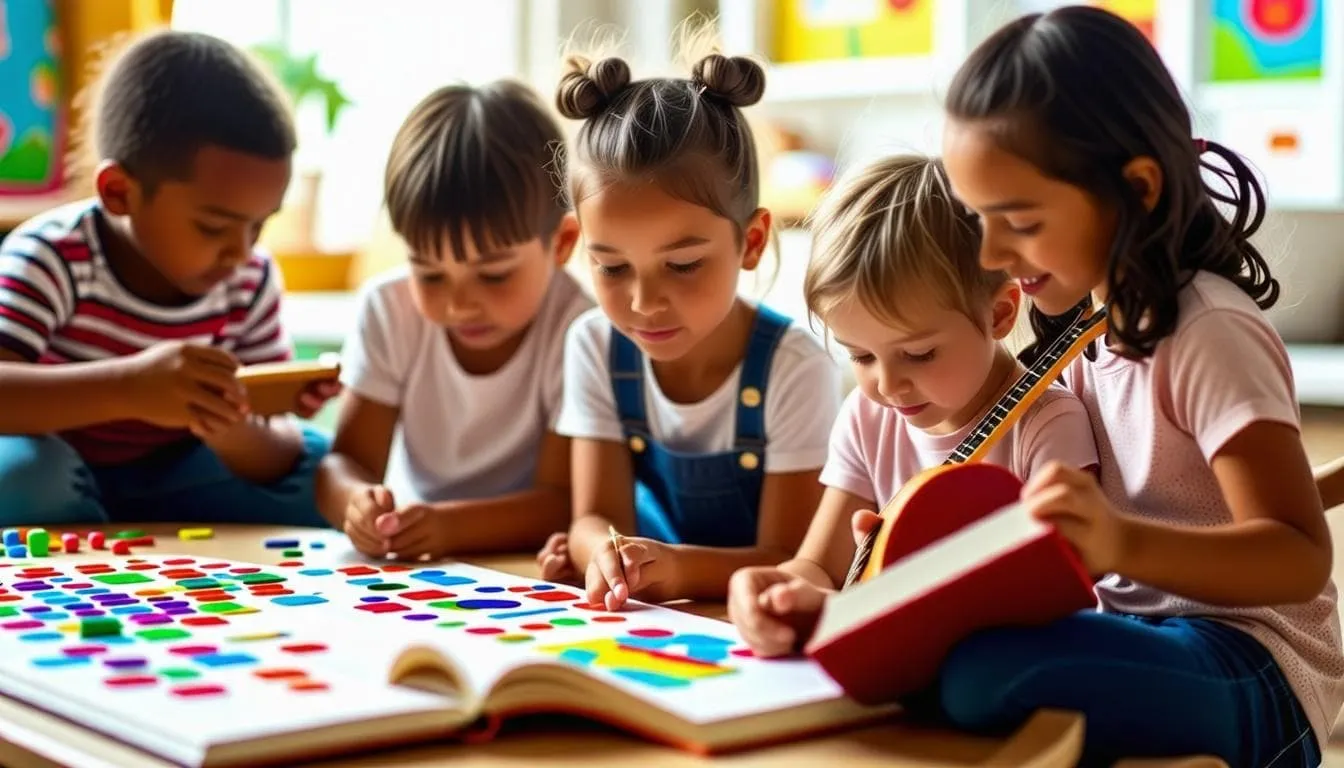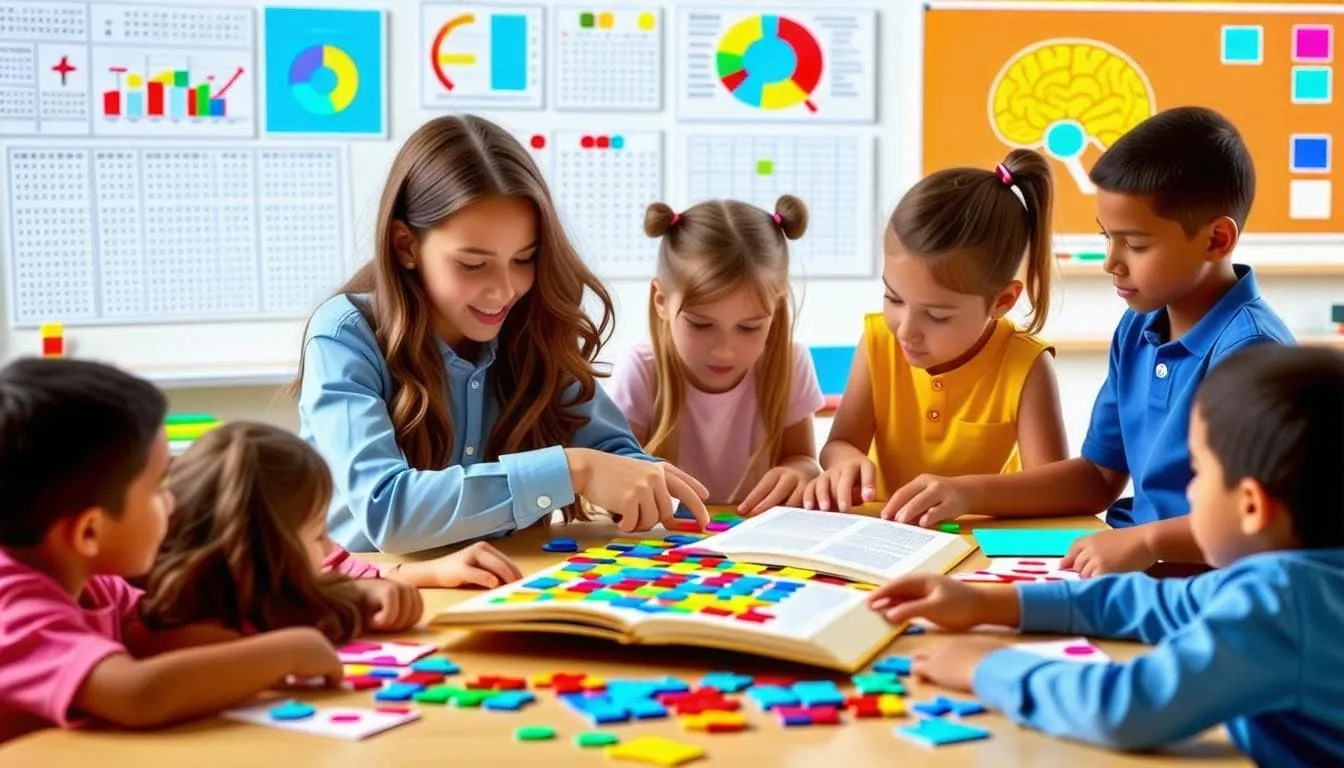Finding out that we had gifted children was a surprising journey. It all started when our four-year-old daughter taught herself to read. She was so excited to learn that she felt sad about waiting to start school. This made us realize she was different.
Then, we noticed our older daughter struggled in school. It turned out she was bored because she needed more challenges. After testing, we found all three of our children had IQs above 145. They are incredibly bright and need the right support to thrive while still enjoying their childhood.
Identifying Early Signs of Giftedness

Recognizing the early signs of giftedness in our children can feel like hunting for hidden treasures. Have you ever noticed how some kids seem to absorb information like sponges?
This insatiable curiosity is often one of the initial clues. Gifted children don’t just ask “why”; they explore deeper, asking “why not?” and “what if?”
Another telltale sign is their exceptional memory. Imagine a child who can recall the details of a story they heard weeks ago or remember every single dinosaur’s name from a book. That’s not just impressive; it’s a hallmark of giftedness! Gifted kids often display advanced reasoning and problem-solving skills, tackling puzzles that stump their peers.
- Emotional Sensitivity: These kids often feel emotions deeply, showing empathy beyond their years.
- Asynchronous Development: They might excel academically while still experiencing typical childhood challenges.
In the end, identifying giftedness isn’t just about IQ scores; it’s about understanding our children’s unique learning styles and providing the right support. With the right environment, they can thrive and explore their incredible potential!
Understanding Cognitive Abilities and Assessments

When we think about our kids, we often wonder: how do we know if they’re truly gifted?
It turns out that understanding cognitive abilities is like piecing together a puzzle. Each child has unique strengths, and assessments help us see the full picture.
For instance, IQ tests measure intellectual potential, revealing how our children excel in areas like language and math. Imagine a child who comprehends material several grades ahead of their peers—it’s like watching a sprinter zoom past others on the track! But it’s not just about numbers; these tests also highlight emotional depth and curiosity.
We learned that assessments can be a game-changer. They provide an objective way to identify giftedness, showing us where our kids shine.
In the end, testing isn’t just about scores; it’s about understanding our children’s unique learning styles and providing the right support. After all, when people have strong minds, it impacts how they feel too, not just how they think!
Exploring Educational Psychology and Gifted Education
We found our children were gifted when our four-year-old daughter taught herself to read. Imagine her disappointment at having to wait a year to start school! This was just the beginning of our journey into the world of gifted education.
Gifted children often display traits that set them apart. They can learn and process information faster than their peers, sometimes grasping concepts several grades ahead. For example, our older daughter jumped a grade because of her boredom in class. It’s like watching a race car stuck in traffic—frustrating for everyone involved!
Identifying giftedness isn’t always straightforward. Many believe teachers can spot these kids easily, but it often requires a trained educational psychologist to assess their talents. We learned that emotional intelligence and creativity are just as significant as academic achievement. Gifted characteristics can include:
- Curiosity: They ask complex questions about the world.
- Exceptional memory: They remember details others forget.
- Creativity: They think outside the box and solve problems distinctively.
As we steer this exciting yet challenging path, we realize that our gifted kids need both intellectual stimulation and the freedom to just be kids. It’s a balancing act, but we wouldn’t trade it for anything!
Supporting Social-Emotional Development in Gifted Children
We all know that nurturing the social-emotional development of our gifted children is like watering a delicate plant. It requires attention and care. One of the best ways we can support them is by being strong advocates for their educational experiences. Have you ever thought about how significant communication is?
It’s like a bridge connecting us to our kids’ feelings and thoughts.
Gifted children often experience emotions more intensely than their peers. This can lead to challenges, like feeling isolated or misunderstood. We can help by encouraging open conversations about their feelings. For instance, when our daughter expressed frustration about school, we listened and validated her emotions. It’s critical to recognize that their emotional intelligence is just as significant as their academic skills.
Here are some effective strategies to support their development:
- Encourage creativity: Provide opportunities for them to explore their interests.
- Promote resilience: Teach them how to cope with setbacks.
- Nurture social skills: Help them build friendships with peers who share their interests.
By tuning into their unique needs, we can help our gifted children thrive emotionally and socially. For more insights on identifying and supporting gifted students, check out this resource.
Summing up
Supporting our gifted children means more than just focusing on their intelligence. We need to nurture their social and emotional growth too. This helps them build strong relationships and cope with challenges. By being involved and communicating openly, we can help them thrive. It’s a rewarding journey that shapes their future. Let’s continue to advocate for their needs and celebrate their unique gifts together.
